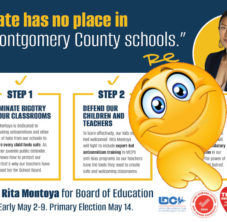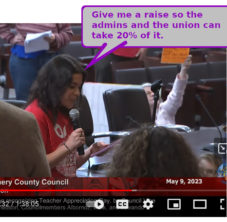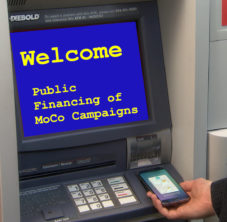Some political activists criticize David Trone and his recent Senate primary campaign because he attempted to buy his victory with his own money. That’s a fair complaint. Michael Bloomberg, Vivek Ramaswamy, Tom Steyer, Steve Forbes, and H. Ross Perot are also on the list of wealthy candidates financing their own sometimes successful but more often failed campaigns.
Is buying an election with your own money a priori unethical? One fundamental principle of democracy is one voter–one vote, and a candidate spending his own money to cajole voters to vote as he does smells prima facie like a violation of that principle. On the other hand, there is a limit to advertising, political or otherwise. I’m immune to the Starbucks frappuccino advertisements because I don’t like the stuff, but when it comes to the advertisements for Lindt dark chocolates, I’m a complete sucker. Similarly, if Trone had nothing to sell to his Democratic brothers and sisters, then even doubling his outrageous war chest would not have helped him. Given Trone’s defeat, and the defeat of other wealthy candidates, I’m not sure self-funded campaigns is all that objectionable.
If we can’t make a solid case for or against self-funded campaigns, what can we say about no-funded campaigns? Natalie Zimmerman reported $2,304 in cash and in-kind contributions for her successful campaign in the May Democratic Board of Education primaries. Only 29 people made cash contributions, so in terms of participation and donations hers is not a campaign with a lot of popular depth. Abi Thioye had better financing ($3,255 from 45 contributors) yet came in last in the same race—although in the big scheme of things the financing is similar for both candidates. At the end of the day, BoE campaigns don’t attract the big money, so an aspiring candidate needs to get the support somewhere else.
That somewhere else is the teachers’ union. More accurately, the small committee that decides on the teachers’ union’s endorsements. Based on the vote tallies, that endorsement guarantees you from 43,620 votes (Montoya) to an astonishing 65,189 votes (Stewart).
Endorsements from teachers’ unions don’t always guarantee a win. Researcher Michael Hartney presents very good evidence that nationally, “Teachers’ unions dominate local school board elections: they win seven out of 10 races.” Nevertheless, a 70% win rate is a complete violation of the one voter–one vote rule, by far worse than the billionaires self-funding their rickety campaigns. What’s more, those union endorsements come very cheaply, as Zimmerman’s and Montoya’s campaigns prove—far less than what Trone spent and even less than what women spend annually on their caffeine habits.
If we’re going to criticize Trone and his self-financed campaign, then we also need to criticize our local BoE candidates who seek the teachers’ union’s endorsements.




